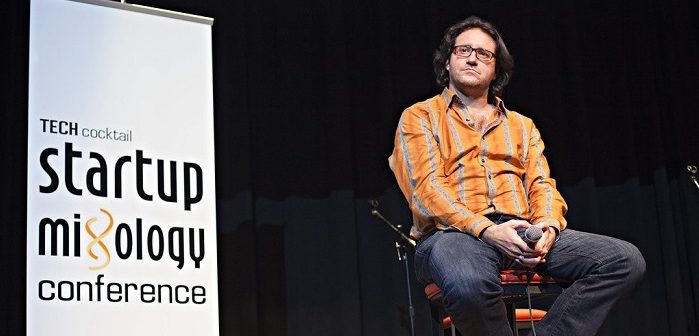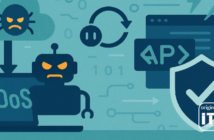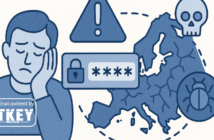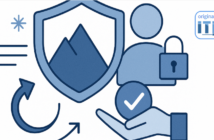The post was originally published on the blog Feld Thoughts.
While everyone I know feels the weight of being in the midst of the Covid crisis, we are actually dealing with the overlap of three linked crises. Understanding this, and putting it in historical context, has been helpful to me as I process real-time inputs and prioritize my activities.
The three crises are:
- a health crisis (COVID-19) that has generated…
- a financial crisis, each of which has generated massive societal disruption which will generate…
- a mental health crisis.
In addition, these crises are localized (in a community) at a state level, a national level, and a global level.
Yeah – that’s a lot.
Very few people alive today have experienced a health crisis like COVID-19. The closest one that people seem to reference is the 1918 Spanish Flu. That was 102 years ago. Assuming that you have to be about 8 years old to even remember this, that puts the age of people alive who remember this at 110. There are only around 100 people alive on the planet today who are 110 or older.
I’m 54. The closest analogy I have to this is HIV / AIDS, which broke out when I was in college (I was an undergraduate from 1983 – 1987). I lived in Boston, one of the cities where HIV / AIDS was visible, and the social dynamics, politics, and stigma around it were front and center. I had several close friends with HIV and my fraternity big brother died of AIDS in 1990. Around 700,000 people have died of AIDS in the US since it emerged in the early 1980s, which is a large number. However, in contrast to COVID-19, it was a very slow-moving virus, so the experience has echoes for me, but it’s not equivalent.
I’ve been through multiple financial crises. I remember Black Monday in 1987 (I was running my first company – Feld Technologies – in Boston.) I was decimated in the collapse of the Internet bubble and had extremely rough business experience from 2001 – 2006 (which I lovingly refer to as “The Grind”). We started Foundry Group and Techstars just prior to the Global Financial Crisis of 2008 – 2009 and when I look back, it was the moment in time our business world shifted from massive hierarchies to a different long term system that included networks, entrepreneurship, and the democratization of innovation. Oh, and the emergence of startup communities around the world.
I’ve been through many of my own mental health struggles and learned many things about how to manage my own issues, as well as being sensitive, empathetic, and understanding of others.
That said, we are in a moment when all three are colliding against a backdrop of fear, uncertainty, and isolation. Historical rules about things are being thrown away daily as we all try to adapt and adjust to an extremely fast-moving disease that is impacting every nook and cranny of our lives.
If your level of disorientation and anxiety feels extreme relative to what you’ve experienced, understand that we are – collectively as a society – trying to deal with three crises at the same time.
I’m involved in many things around this and am trying to help wherever I can. But, as several of my partners have reminded me, you have to take care of yourself first to be able to help anyone else. I’m fortunate to have Amy by my side, working hard also, but paying attention to what we both need to sustain our energy and focus through this.
Finally, this is not just going to “be over.” That’s magical thinking.
There will be many different phases of this, but if you prepare for a long-term experience, you’ll be in a much healthier emotional place. I personally believe that April is going to be an awful month in the United States as the true extent of the health crisis finally hits in our country. The actions we are taking right now will determine whether April is the worst of it but know that May will be rough, and the summer will be unlike “a normal summer” as, even in the best case, we being existing in the context of meaningful long-term societal adjustments.
This rant was meant to be pragmatic, not alarmist.
I’m fundamentally optimistic about humanity, and especially optimistic about the United States over the long-term. But, I believe acting aggressively and with urgency today, and having an expectation that this will last for a while, is a healthy way to approach all three of these crises.
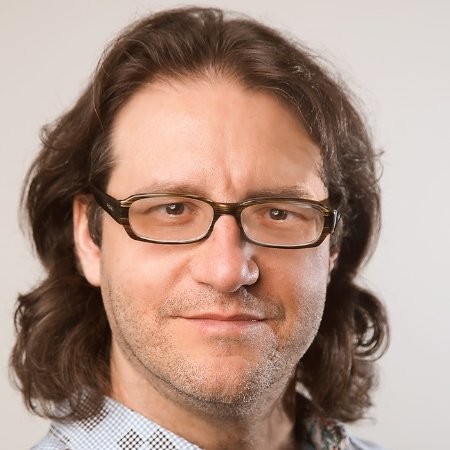
Brad Feld has been an early-stage investor and entrepreneur since 1987. He is a co-founder at Foundry Group, and Techstars. Brad is a writer and speaker on the topics of venture capital investing and entrepreneurship.
Brad is also the author of a number of insightful must-read books – find them here.
Brad holds a Bachelor of Science and Master of Science degrees in Management Science from the Massachusetts Institute of Technology. Brad is also an art collector and long-distance runner. He has completed 25 marathons as part of his mission to finish a marathon in each of the 50 states.
Find more blog posts by Brad on his blog Feld Thoughts.


